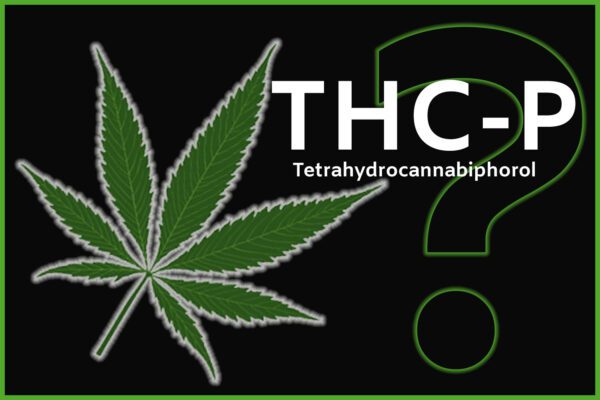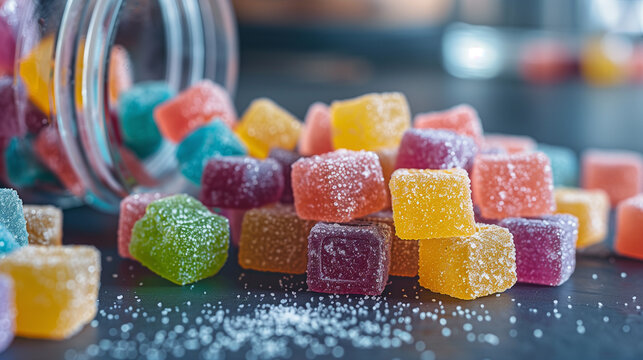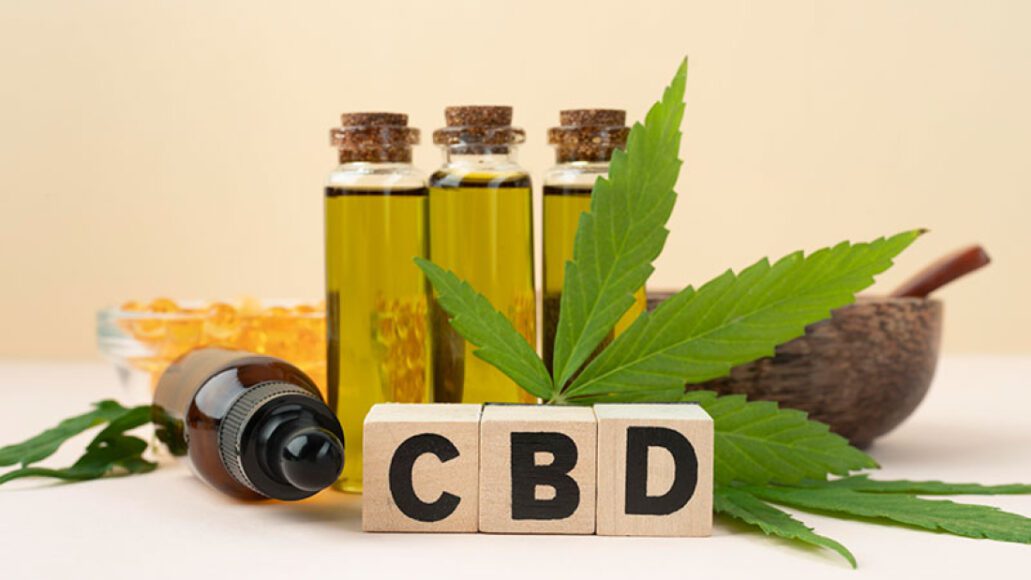Exploring the Science Behind THC-P Products and Their Potential
THC-P is a new type of cannabinoid that has grabbed the attention of scientists and people who like cannabis. It’s different from the THC most people know, which is called delta-9 THC. THC-P was discovered in 2019 by Italian researchers while they were studying a particular strain of marijuana. They found it accidentally and realized it has interesting properties. In this article, we’ll learn more about THC-P: what it is, what it does, how it compares to other cannabinoids, and whether it’s legal. Come with us as we explore the world of THC-P!
What is THC-P? The Science Behind THC-P
At a tiny level, THC-P looks different compared to the more well-known delta-9 THC. One big difference is in its shape at the molecular level. Both are part of the same family of compounds called cannabinoids, but THC-P has a special seven-atom side chain, while delta-9 THC only has five atoms in its side chain.
This longer side chain isn’t just a small detail. It’s really important because it helps THC-P connect more strongly with our body’s CB1 and CB2 cannabinoid receptors. These receptors are like key parts of our endocannabinoid system, which helps control many things our body does.
Because THC-P binds more tightly to these receptors, it’s thought to have stronger effects compared to delta-9 THC.
In short, THC-P’s unique shape, especially its longer side chain, gives it a special spot among cannabinoids. Its interaction with the endocannabinoid system suggests it could have effects that are more noticeable, which opens up new paths for research and understanding in the world of cannabis science.
Discovery and Research
In 2019, Italian researchers made a surprising discovery in the world of cannabis science: THC-P. They didn’t set out to find it; it happened by chance while they were studying a particular marijuana strain. THC-P is different from the THC most people know about, delta-9 THC.
Since its discovery, scientists have just started looking into THC-P. Early studies suggest it might have therapeutic benefits. Because of its special molecular structure, THC-P could have stronger effects, whether used for fun or for medical reasons.
Even though there’s not a lot of research yet, the initial findings look promising. Scientists are hoping to learn more about all the ways THC-P could be helpful and how it could be used.
THC-P vs. Other Cannabinoids
Delta-9 THC Comparison
Delta-9 THC is the most famous cannabinoid, famous for making people feel high. Even though both delta-9 THC and THC-P are cannabinoids, they have different shapes at the tiny level.
THC-P has a longer side chain with seven atoms, while delta-9 THC has only five atoms in its chain. This longer side chain of THC-P might connect more strongly with cannabinoid receptors. This could mean that THC-P could have stronger effects compared to delta-9 THC.
THC-P and THC-O
THC-O is a different type of cannabinoid from both delta-9 THC and THC-P. We’re still figuring out exactly how the experiences of THC-P and THC-O differ, but early signs show that each one gives you a different kind of feeling.
When THC-P is mixed with other cannabinoids in products, it’s hard to tell exactly what effects it alone might have.
Potency Potential
One of the most interesting things about THC-P is how strong it could be. The Italian researchers who discovered THC-P found that it connects to the CB1 receptor 33 times better than delta-9 THC does.
This doesn’t mean it’s 33 times more likely to make you feel high, but it suggests that THC-P might give you a stronger high compared to other cannabinoids. That’s what makes THC-P stand out among other cannabinoids.
Effects and Experience of THC-P
Psychoactive Potential
THC-P’s special shape suggests it might have effects similar to delta-9 THC, but maybe even stronger. Because it binds really well to cannabinoid receptors, it could lead to a more powerful high.
Comparative Effects
Although researchers are still studying how THC-P compares to other cannabinoids, people’s personal stories suggest it’s unique. Some users say they feel a different kind of high with THC-P. However, it’s important to remember that these experiences are subjective and can be different for each person.
A Word of Caution
Because THC-P is still new and we don’t know much about it yet, it’s a good idea for users to be careful. Since it might have stronger effects and everyone reacts differently, it’s important to start with small amounts and pay attention to how you feel.
Legal Status and Availability of THC-P
In the United States, the laws around THC-P are changing. The 2018 Farm Bill made hemp and its compounds legal, as long as they have less than 0.3% delta-9 THC. In 2022, a federal appeals court confirmed that certain hemp-derived products are legal. However, each state has its own rules, and some states might restrict or ban specific cannabinoids, like THC-P.
THC-P products are starting to show up in stores and online, especially in places that sell hemp-derived products. You can find them in head shops, convenience stores, and some vape shops. But it’s important for consumers to be careful and know the rules in their state before buying THC-P products.
Risks and Safety Concerns
While THC-P’s possible advantages interest many people, we don’t know much about its side effects because there hasn’t been enough research yet. There are also worries about the quality of THC-P products since the market is still new. Until we have more studies, it’s important for users to focus on safety. Look for trustworthy sources and be careful with how much you use.
Final Word
THC-P, with its special molecular makeup and effects, is an exciting new area in the cannabis world. Its discovery has sparked interest and is leading to more exploration. As the cannabis industry grows, ongoing research is crucial to really understand THC-P: what it can do, any risks involved, and how it fits with other cannabinoids.
The future looks bright for THC-P, but like with any new thing, it’s important to be both knowledgeable and careful. We encourage our readers to share what they think and their experiences with THC-P.
Related posts
Exploring the Journey Behind THCP Flower..
What is THC-P: The Complete Guide
The products featured on this site have not been evaluated by the Food and Drug Administration. They are not intended to be used for the diagnosis, treatment, prevention, or cure of any medical condition. Nirvana Organics does not make any claims about the benefits of our products. We recommend consulting your physician before using alternative therapies, especially if you are pregnant, nursing, elderly, chronically ill, or taking prescription medications. You must be at least 21 years old to purchase our products. Consumers assume full responsibility for using these offerings appropriately and legally.
We aim to provide truthful information about our offerings. However, our content is not meant as medical advice or instruction. The customer bears responsibility for using all products appropriately and according to the law. Customers should not construe any information here as professional medical advice or prescriptions. We provide general details about our products but do not claim to treat, cure, or prevent diseases. Creating any treatment regimen is a decision between buyers and their qualified Medical practitioners. Per the PACT Act, we follow regulations regarding the shipment of lawful goods.
THC Disclaimer
Our products contain no more than 0.3% Δ9-THC on a dry weight basis, which meets legal requirements. However, Δ9-THC can cause impairment and other side effects. You must avoid these offerings if pregnant or nursing. We also recommend consultation with a medical professional before consuming Δ9-THC. Keep these products away from children or animals. Operating vehicles or other machinery under the influence of Δ9-THC may be illegal and dangerous.


We at Nirvana Organics believe in quality and customer experience.
©2024. shopnirvanaorganics.com. All Rights Reserved.
- Login
- Sign Up




